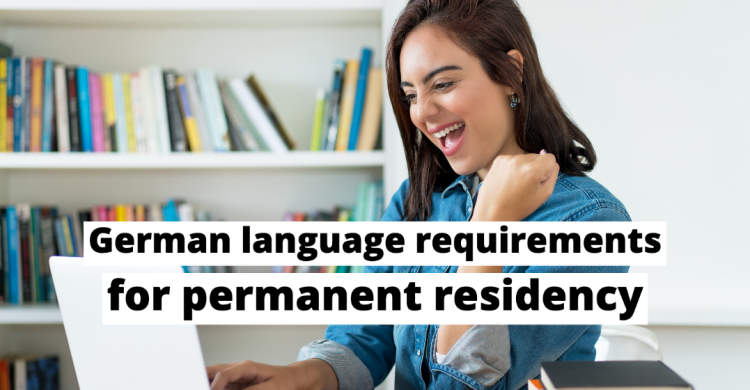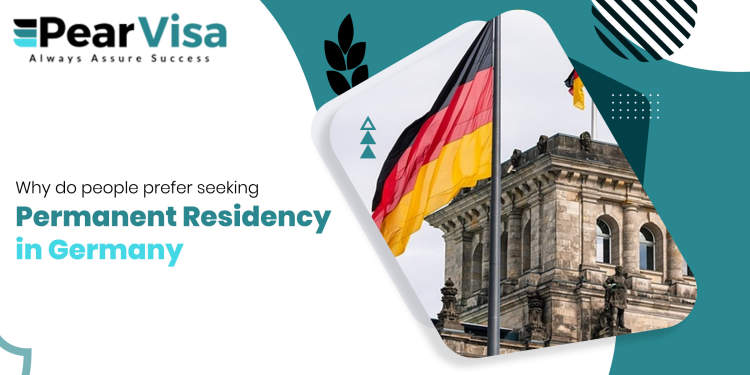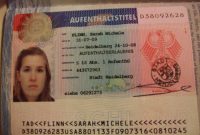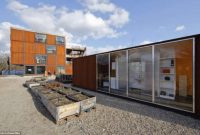Germany is one of the most attractive countries worldwide when it comes to migrating and seeking permanent residency. Despite the recent changes in the country’s immigration policies, there are still several viable pathways to obtain permanent residency. Here are five viable pathways based on your qualifications that will entertain your aspirations of becoming a permanent resident in Germany.
The five pathways to sustainable permanent residency in Germany are through family reunification, skilled immigration, high-skilled workers, job-seekers, and self-employment. Each pathway stands out due to its characteristics and requirements, making it unique and alluring for each individual with aspirations of making Germany their home.
Types of Germany Permanent Residence Permits
Permanent residence permits in Germany offer a pathway to the permanent right to live in the country. Individuals with permanent residence in Germany have the right to gain employment, undertake educational studies, and generally live in Germany without any time limit. There are a few types of residence permits which offer permanent residency in Germany.
Permanent Settlement Permit
A Permanent Settlement Permit is the most sought-after permit for those looking for a long-term residence in Germany. This permit allows the holder to live and work in Germany without restrictions for an unlimited period of time. To be able to qualify for the Permanent Settlement Permit, the individual must already have another type of residence permit (EU Blue Card, Limited Residence Permit, etc.) and have lived in the country for at least five consecutive years.
EU Blue Card
The EU Blue Card is one of the best options for those seeking a permanent residence in Germany. This permit grants the holder the right to live and work in any of the European Union countries for up to four years, after which time they are eligible to apply for a permanent residence permit. To be eligible for the EU Blue Card, you must have a higher degree qualification and a secure job offer in Germany.
Limited Residence Permit
The Limited Residence Permit is also an option for those wishing to permanently reside in Germany. This permit is often granted to those who have been promised a Permanent Settlement Permit after a certain period of time. Initially the permit is valid for a period of up to one year, during which time the individual must fulfill the requirements for a Permanent Settlement Permit. This allows them to remain in the country until their permanent permit is approved.
Limited Skilled Worker Permit
The Limited Skilled Worker Permit is offered to those who fulfil certain criteria. It is open to foreign students and other highly qualified individuals who have completed their studies within the last six months. The permit allows the holder to look for a job and start working upon finding one. After two years of having a Limited Skilled Worker Permit, the individual is eligible to convert it to the more comprehensive EU Blue Card.
Residence Title for the Self-Employed
The Residence Title for the Self-Employed is geared towards those who are setting up their own business in Germany. This permit allows entrepreneurs to set up and manage their own enterprise in the country. Individuals must prove that they have the necessary qualifications to carry out their own business, such as sufficient financial capital or a successful business plan. After five years of having the permit, the individual is eligible to apply for a Permanent Settlement Permit.
Requirements for Permanent Residency

Permanent residency is an important decision for people around the world, and Germany is no exception. In order to obtain German permanent residency, you must meet a number of requirements. Here’s a look at these requirements.
Nationality
In general, the majority of countries around the world have similar requirements when it comes to permanent residency in Germany. An applicant must have German citizenship or the citizenship of an European Economic Area (EEA) or Switzerland.
Language Skills
In addition, the applicant must be able to demonstrate a good level of German language skills. This means being able to read, write, understand, and speak German. Language tests, such as the TestDaF or the Goethe-Zertifikat, are necessary in order to demonstrate your language proficiency.
Education
In some cases, an education at a German university or an educational institution is necessary for applicants who are not German citizens or citizens of an EEA country or Switzerland, depending on the type of permanent residency.
Employment Position
Demonstrating your professional qualifications is also key to obtaining permanent residency in Germany. Typically, applicants must be employed in a field that is in demand in Germany and must have a good reputation.
Age
Lastly, applicants must be under the age of 45 at the time of application. Additionally, in some cases, applicants must live and work in Germany for a continuous period of at least seven years prior to applying for permanent residency.
Application Process for Permanent Residency
Permanent residency is a status that grants foreigners the right to live and work in Germany indefinitely. It is granted in five pathways, each of which has different sets of requirements and an application process.
The five pathways to permanent residency in Germany are: Direct family reunification, EU Blue Card Germany, Highly-skilled worker, Skilled worker in a shortage Occupation, and Settlement permit.
Direct Family Reunification
Family reunification is a pathway to permanent residency for family members of German citizens and EU citizens who have resided in Germany for at least 5 years.
- For German and EU citizens:
- The applicant must prove a family relationship to the German citizen/EU citizen.
- The German citizen/EU citizen has to prove to the authorities that they have the financial means to support the applicant.
- For Non EU Citizens:
- The applicant must prove a family relationship to the non-EU citizen.
- The non-EU citizen must prove to the authorities that they have been living in Germany for at least 2 years.
- The non-EU citizen must prove to the authorities that they have the financial means to support the applicant.
EU Blue Card Germany
The EU Blue Card Germany is a pathway to permanent residency for highly-qualified professionals. To be eligible, applicants must have:
- Completed a university degree within the past 12 months
- A minimum salary of €50,800/year
- A valid work contract or job offer from a German employer
Highly-skilled Worker
The Highly-skilled Worker pathway is available to foreign nationals who have a university degree and a job offer from a German employer with a minimum salary of €42,602/year.
Skilled Worker in a Shortage Occupation
The Skilled Worker in a Shortage Occupation pathway is available to foreign nationals who have specific qualifications and skills that are required in certain occupations, such as tech professionals, medical professionals, or certain tradesmen.
Settlement Permit
The settlement permit is a pathway to permanent residency for foreign nationals who have resided in Germany for at least 5 years. To be eligible, applicants must have
- Proof of Income
- Proof of minimum Health insurance
- Proof of Integration in Germany
Once the application is complete, the next step is to await a decision from the Federal Employment Agency, which generally takes several months.
Benefits of Permanent Residency in Germany
Permanent residency in Germany has many benefits for those looking to make a more permanent residence in the country. By achieving permanent residency, you will have a wide range of advantages such as access to a number of social and economic benefits, residence rights, and much more. Here are some of the major benefits of achieving permanent residency in Germany:
Access to Economic Benefits
Permanent residents in Germany are entitled to a number of economic benefits, most of which mirror the rights of German citizens. These benefits include unemployment benefits, social security, universal health insurance, and access to public education. Permanent residents in Germany are also permitted to live and work in the country without the need for a visa. This allows them to access job opportunities, health insurance coverage, and the social security system.
Right to Residency
Permanent residence in Germany gives you the right to stay in the country for as long as you want. For example, you will not be subject to any visa re-entry restrictions and you will be able to travel in and out of the country freely. In addition, you will not be required to complete any paperwork each time you enter the country.
Family Members Rights
If you are a permanent resident in Germany, you can also apply for certain rights for your family members. With a permanent residency status, you can bring your family to live with you in Germany and gain access to the same rights and benefits that you receive. This includes the right to employment and healthcare. In some cases, your family members may even be eligible for German citizenship.
Ease of Travel
Permanent residence in Germany makes it easier for you to travel outside of the country. You will no longer require to apply for a visa to travel to other countries, as many of them will recognize your permanent residency status. This can make it easier for you to travel to other countries on business or pleasure trips.
Language Rights
In addition, as a permanent resident in Germany, you will have the right to speak the German language. This gives you the opportunity to learn and practice the language in an environment that encourages it. This can make it much easier to adjust to life in Germany and become comfortable with the culture.
Permanent residency in Germany has many advantages that make it an attractive option for those looking to transition to life in the country. These benefits include access to economic opportunities, family members rights, and the ability to travel freely outside of Germany. It is important to remember, however, that the process of obtaining permanent residency can be long and difficult, so it is important to be prepared for the potential challenges.
Common Mistakes to Avoid During the Application Process
Permanently residing in Germany and becoming a German citizen is a great opportunity for those who are looking for a better life, career advancements, and access to quality education, amongst other benefits. The process of attaining a permanent residency in Germany is generally a lengthy one, and some steps and regulations must be followed to comply with the German immigration laws.
That said, some may make mistakes during the process that can have an impact on the outcome of their application. To ensure that your application process runs smoothly and your candidacy is approved swiftly, be sure to avoid the following commonly made mistakes:
1. Neglecting Documentation
When applying for a residence permit in Germany, you should ensure all the required paperwork has been properly completed. For this, you must provide all the necessary original documents along with the documentation that proves your compliance with the immigration laws.
2. Not Seeking Professional Advice
It’s always best to get help from a professional immigration lawyer or attorney when submitting an application for residence in Germany. They are more familiar with the regulations, legal issues, and the best strategies to obtain the desired permit for residence.
3. Not Judging Eligibility Criteria
Before applying for a residence permit in Germany, it is important to evaluate whether you are actually eligible and meet the requirements established by the German government. Not doing so can cost you money and time, and can delay the outcome of your application.
4. Not Verifying Pathways
Once you have determined your eligibility, you must find the proper pathways to become a permanent resident. There are pathways like applying for an artist residency, launching a business, and others. Therefore, it’s mandatory to consider all the available pathways, and select the one that best fits your profile.
5. Failing to Understand the Application Process
It is of utmost importance to understand the whole process before getting started. You need to know the deadlines for each step and make sure you meet each one. Additionally, you should also pay attention to the applicable fees throughout the application.
In conclusion
Obtaining a permanent residency in Germany is a lengthy process that requires extensive research and paperwork. To ensure your application is completed efficiently, one must avoid the following mistakes:
- Neglecting documentation
- Not seeking professional advice
- Not judging eligibility criteria
- Not verifying pathways
- Failing to understand the application process
By complying with the necessary steps and following the guidelines, you can make the application process smoother and more successful.
Conclusion
Germany has a range of excellent pathways to permanent residency for internationals. All programs from Fiance, Family Immigration, Freiberufler, Skilled Employee and Intra-Company Transfer will give the right to stay in Germany for a period of several years before seeking and eventually gaining German Permanent Residency. Each program has individual requirements that applicants must meet and the selection process is highly competitive.
It is important to do extensive research and seek the help of an experienced German migration consultant to better navigate the complex German visa system. This will ensure that the correct application, documents and other requirements are prepared for a successful result.




